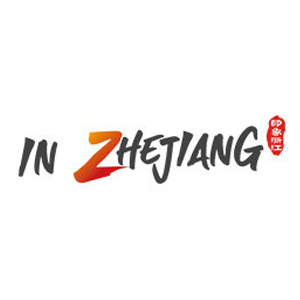Hangzhou City Brain to support data-driven car park management
2020-08-25 06:18:09 source: Zhang Mengyue
Since June 20, the existing queue for admission channels around the affiliated hospitals of Zhejiang University has been gradually canceled, restoring the traffic function of the whole road. In the case of full parking spaces in the hospitals, the driver must park in the surrounding parking garages. This major change is based on Hangzhou City Brain.

(Photo via Ma Saijie)
As the province's two largest number of daily outpatient visits of the three-A general hospital, parking demand of the First Affiliated Hospital, College of Medicine, Zhejiang University, and the Second Affiliated Hospital of Zhejiang University School of Medicine is more than 10,000 vehicles. In the 2019 "Congestion Ranking of The Three-A Hospitals in China", the road congestion index of the First Affiliated Hospital, College of Medicine, Zhejiang University ranked first.
How to solve it? There are three approaches.
First, Hangzhou City Brain sorted out a total of 2,924 parking spaces in 14 parking lots and 1 public road around the hospital and launched the push function of the optimization. After the registration of medical patients, the system will comprehensively recommend the top five best parking places around the hospital as the first destination.
Second, there are a total of 41 parking guidance boards around the two hospitals, which push the information of parking spaces in real-time to realize the "look up to know the situation of parking" and effectively divert vehicles.
Third, traffic police and volunteers are on the scene to guide the vehicles. 20 stop-and-go temporary parking spaces have been set up around the two hospitals in order to meet the demand for short-term parking for medical patients.
After more than a month of trial operation, the control of congestion has shown some effect: the delay index in the enclosed area of the two hospitals has decreased by 20% on average, and the average parking time of the enclosed area has been reduced by 75 minutes.

In addition to hospitals, Hangzhou City Brain offers a new way to solve parking problems in neighborhoods.
"Although you have to walk more, you don't have to look around for parking spaces." Recently, Mr. Luo, a resident of Dongxin Street, found a "good home" for his car. After 18 o 'clock every day, he can park the car to the underground parking lot of Huashengda Times Center beside the community.
"Share parking Spaces, park off-peak" is a new application of Dongxin Street, which relies on the digital cockpit of the Hangzhou City Brain. Through the digital cockpit, Dongxin Street found that the vacancy rate of the underground parking lot of Huashengda Times Center and the underground parking lot of Xintiandi Vitality PARK exceeded 50% at night. Hence, the error peak area was designated in the two parking lots to share 600 parking spaces. Residents of the surrounding communities can park their cars in the two parking lots from 18:00 to 9:00 the next day.
Changqing Street also used HangzhouCity Brain to solve the parking problem in the community. Within the block, there are only 217 parking spaces in the “Community of 15 homes”. At night, more than 50 cars cannot be parked in the community, thus sticking in Jiankang Road.
"When we analyzed the data using the HangzhouCity Brain parking system, we found that there were lots of empty parking lots in surrounding buildings at night," the person in charge of Changqing Street said. Therefore, relying on the digital cockpit of the HangzhouCity Brain, the street utilizes 1,623 parking spaces of venues, building parking lots and public parking lots, and determines the scheme of off-peak parking.

The city has become smarter and more intelligent. Driving in Hangzhou today, many people can feel the change.
Before the Dragon Boat Festival holiday, the Wulin business district set up 17 electronic screens, to achieve the dynamic display of the information of parking lots in the business district. Tianshui Street built the "Wulin Business district parking management system" on the city platform of HangzhouCity Brain, aiming to create a convenient parking environment for the citizens.
In fact, there are many parking garages in the Wulin business district. However, empty parking spaces have not been informed by consumers. And the new system enables the parking spaces to be fully utilized through parking lot guidance and broadcasting data in real time.
"Management, service, payment, decision, and operation are the core functions of the Hangzhou City Brain parking system," Zhang Ying, the chief of Information Section of Hangzhou City Management and Support Center, said.
A total of 1.16 million parking spaces, including 2,700 parking garages and 1,400 public parking spaces, are connected to the Hangzhou City Brain parking system, according to a person in charge of Hangzhou City Management and Support center.
(Compiled by Xu Yuhong, translated by Yu Fei)
read more




